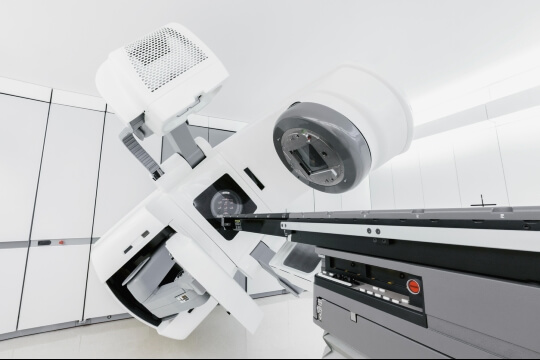Mayo Clinic Opens Novel Clinical Trial for Mesothelioma
Research & Clinical TrialsWritten by Tim Povtak | Edited By Walter Pacheco

Researchers at the much-acclaimed Mayo Clinic in Rochester, Minnesota, have opened the first clinical trial for mesothelioma patients that combines a recently approved immunotherapy treatment with targeted radiation.
Potential for extending survival is there.
This single-center phase I clinical trial opens June 24, and is expected to enroll at least 20 participants. It will study the safety and effectiveness of stereotactic body radiation therapy, known as SBRT, when added to the immunotherapy combination of Opdivo and Yervoy.
“The reasoning behind this study is that we need to build upon the success we’ve seen with immunotherapy in treating mesothelioma and take that momentum forward,” Dr. William Breen, radiation oncologist at Mayo Clinic and trial principal investigator, told The Mesothelioma Center at Asbestos.com. “We’re hoping to see some real synergy.”
In October 2020, the U.S. Food and Drug Administration approved the Opdivo and Yervoy combination for mesothelioma. It was the first systemic, first-line treatment approved for mesothelioma in 16 years. It also was viewed as a major advancement, extending estimated survival by 30% from previous standard of care.
Combination Immunotherapy Works Best for Mesothelioma
Opdivo and Yervoy, also known by the generic names nivolumab and ipilimumab, respectively, are produced by pharmaceutical company Bristol Myers Squibb. Their effectiveness involves harnessing a patient’s own immune system to better attack the cancer.
Breen said other immunotherapies may also be used, depending upon the personalization of the patients enrolled.
While immunotherapy is being touted as a major treatment advancement for many cancers, most mesothelioma doctors have agreed its ultimate effectiveness will involve a synergy with other treatments, which has led to the most recent studies.
Opdivo and Yervoy, for example, have shown success in an estimated half of patients with pleural mesothelioma, and those have been to varying degrees.
“We know that immunotherapy works to improve survival,” Breen said. “But let’s see how much better it can be when combined with another effective treatment.”

Get help improving your prognosis by finding a mesothelioma clinical trial today.
Find a Clinical TrialMemorial Sloan Kettering Launches Similar Trial
Memorial Sloan Kettering Cancer Center in New York opened a similar trial in 2018 for mesothelioma involving SBRT, but with the immunotherapy drug avelumab, which alone has not shown the same effectiveness as Opdivo and Yervoy. That trial has stopped recruiting patients. The principal investigator declined to provide a study update to Asbestos.com.
In July, Memorial Sloan Kettering is scheduled to open another mesothelioma clinical trial studying the immunotherapy drug Keytruda in combination with intensity modulated pleural radiation therapy, known as IMPRINT.
Keytruda has been approved by the FDA for a small segment of mesothelioma patients in a second-line setting if no alternative options are available.
Mayo Brings Expertise to Mesothelioma Research
The state-of-the-art Mayo Clinic has been a National Cancer Institute Comprehensive Cancer Center for more than 40 years. It consistently ranks among the country’s top centers for cancer care. Its mesothelioma program has been lauded for excellence in research.
“Our study here was built out of multidisciplinary collaboration that included medical oncologists, pulmonologists and radiation oncologists,” Breen said. “We know now that immunotherapy works in improving survival. And we’ve seen the synergy with immunotherapy and this type of radiation work really well with other cancers.”
Patients in the clinical trial at Mayo will undergo three to five daily fractions of SBRT, along with immunotherapy, at the discretion of the medical oncologist.
The high-dose, tightly targeted radiation is expected to help the immune system better recognize the tumor cells as foreign, making them more vulnerable to the immunotherapy drugs.
“Our primary goal is to demonstrate this is a safe, feasible option, but we’re also hoping we see good success in treating the cancer effectively for these patients,” Breen said. “By bringing these two types of treatments together, we’re hoping to build on the momentum that is already out there today.”






